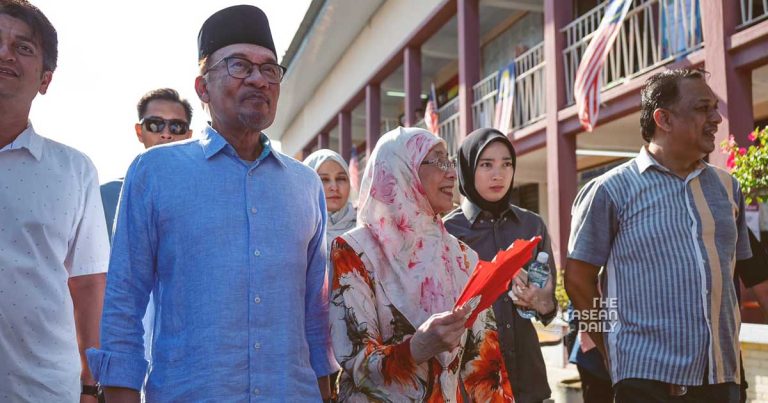14-8-2023 (KUALA LUMPUR) Prime Minister Anwar Ibrahim and his ruling coalition in Malaysia face heightened challenges following significant losses to the opposition in recent state elections. The extent of victories scored by Perikatan Nasional has caught many by surprise and increased political pressure on Anwar. Analysts say the Prime Minister will need to up his efforts to maintain Malay support while keeping minority groups on side.
Perikatan Nasional, led by Muhyiddin Yassin, made strong gains against Anwar’s Pakatan Harapan-Barisan Nasional alliance in the 6 state polls held on August 12th. PN captured 11 seats in the island state of Penang compared to just one previously. In the economically important state of Selangor, PN more than quadrupled its representation from 5 to 22 seats. They performed particularly well in states traditionally supporting UMNO such as Kedah and Kelantan, consolidating power.
The poor results for Anwar’s alliance come despite efforts to shore up Malay backing since assuming the premiership. However, some moves risk alienating minority ethnic groups key to his ascension. Going forward, Anwar may introduce more populist policies benefiting all races or reshuffle cabinet to satisfy diverse constituencies. Stepping up engagement is necessary given PN’s likely momentum ahead of the next general election.
Analysts cite multiple reasons for PN’s victories. UMNO, the largest party in Anwar’s alliance, continues declining and only won 19 of 108 seats contested. Many feel uneasy backing a multiethnic coalition after traditionally supporting the Malay-centric UMNO. By contrast, PN portrays itself as the sole Malay option despite having the multi-racial Gerakan party. UMNO also faces disconnect between leaders and grassroots due to unresolved issues.
Anwar must now consider policy changes to broaden his appeal. Targeting poverty across ethnic groups through welfare and development in poorer states could alleviate discontent driving Malay support to PN. Reforms on constituency funding and judiciary independence may satisfy partners while boosting integrity. Pandering only to conservatives risks minority ‘revolt’, harming the multi-ethnic vision crucial to past success. A cabinet reshuffle incorporating respected technocrats could impress the middle class across races.
PN will leverage their strong performance to weaken Anwar. Muhyiddin may petition defecting lawmakers to vote against the budget in a no-confidence motion. There is also potential to engineer a leadership change replacing unpopular UMNO president Zahid Hamidi, worsening cracks in Anwar’s coalition. However, the disparate nature of PN’s alliance makes sustained challenges difficult without further eroding ruling party support.
Division and frustrations within UMNO also present challenges. Supporters remain unhappy with Zahid at the helm and a lack of credible grassroots leaders. Figures once seen as presidential options like Khairy Jamaluddin have been marginalised. A plot replacing Zahid with former Menteri Besar Mohamad Hasan may appease UMNO members if successful, giving PN an uplift. Nonetheless, continued drift risks permanent losses to the opposition’s ranks.
Guiding the politically-diverse unity government will prove a balancing act for Anwar. Short-term appeasement of any group risks alienating others and destabilising the coalition. Introducing sensible, inclusive reforms benefiting all Malaysians remains the best strategy to weather current turbulence and ultimately strengthen, not weaken, the foundations of his administration. However, political realities may force some concessions to conservative forces that could undermine the multiethnic vision many hope the country’s new leadership can deliver. Navigating these challenges will test Anwar’s political acumen amid calls for big changes following setbacks at the ballot box.




